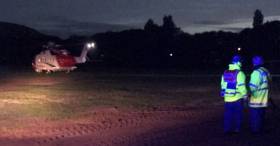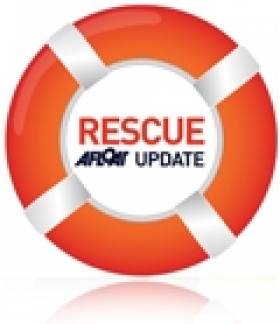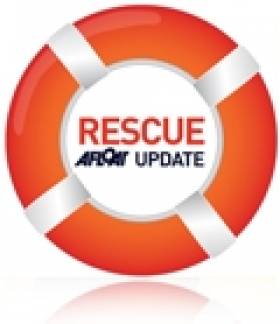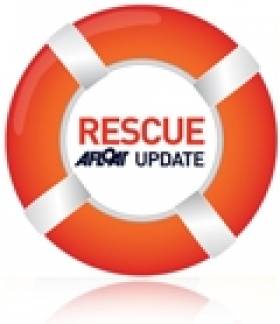Displaying items by tag: Crewman
Airlift By Coastguard of Stena Line Worker to Hospital
#Coastguard - A worker from a ferry writes BelfastLive had to be airlifted to Belfast after falling ill on board the ferry.
The coastguard was alerted to the medical emergency on board the Stena Lagan in the early hours of (yesterday) morning, September 6.
Reports said the crew member had fallen ill on the Liverpool to Belfast ferry. The coastguard set up a medi-link call with a doctor and it was advised the crew member was evacuated from the ship.
To read more on this story click here.
Search Scaled Down for Missing Crewman in Irish Sea
#RESCUE - BBC News reports that the search for a cargo ship crewman missing in the Irish Sea has been scaled down.
The 22-year-old from Slovakia was reported missing yesterday morning from the Fehn Sirius, which was en route from Belfast to Portugal, as it headed past Arklow, Co Wicklow.
According to The Irish Times, he was last seen on the cargo ship around 10pm on Monday night as it headed south of the entrance to Strangford Lough.
Lifeboats from Portaferry and Newcastle in Northern Ireland and Arklow joined the search and rescue operation, which was assisted by the RAF helicopter based at Prestwick in Scotland and an Irish Coast Guard helicopter.
However, most rescue services have now been stood down as the Fehn Sirius continues to backtrack in the Irish Sea, with assistance from the Naval Service vessel LE Ciara.
Only three days ago the body of another mariner was recovered from the Irish Sea off the north Dublin coast, more than a month after he went missing.
Body Recovered Off Dublin Thought to Be Missing Fisherman
#RESCUE - The Evening Herald reports that a body recovered 14km off the coast of north Dublin on Sunday is believed to be that of a missing fisherman.
The grisly find was made by the fishing vessel Rath Eilte in the waters off Skerries. A post-mortem was set to be carried out yesterday to determine the cause of death.
Found fully clothed in black and yellow oilskins, the remains are thought to be those of a Ukrainian in his 30s, a crewman on the Kilkeel-registered Zenith who was reported missing some 14.5km off Clogherhead in Co Louth on 29 January.
Fisherman on Spanish Boat Airlifted to Cork
The skipper of the fishing vessel Albelo Primero radioed the Irish Coast Guard's Marine Rescue Co-ordination Centre on Wednesday night, reporting that a 33-year-old crewman had taken ill and required emergency medical attention.
The man was airlifted by coastguard helicopter to Cork Airport and transfered by ambulance to Cork University Hospital.
The Irish Times said his condition is not understood to be life-threatening.
Second Attempt to Airlift Injured Crewman Successful
The Shannon-based Coast Guard Helicopter reached the boat shortly before 2pm and succeeded in taking the fisherman, an Egyptian national, on board.
The man, who had sustained serious injuries after being struck by a steel hawser, was to be taken to Cork University Hospital.
An earlier attempt to airlift him from the vessel when it was 110km south of Kinsale had to be abandoned when the helicopter flew into a snowstorm and its cockpit window iced over.
































































